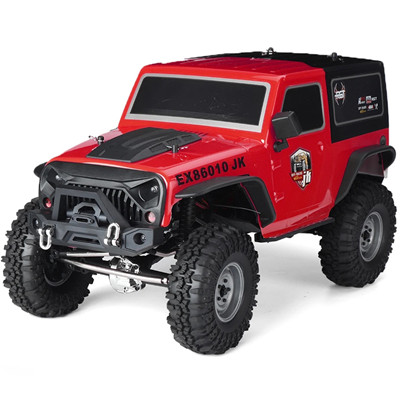The world of remote control cars is a showcase of technical innovation, where advanced components and intricate designs combine to deliver unparalleled performance. From the power of brushless motors to the precision of digital transmitters, these technical marvels are the driving force behind the exhilarating experiences remote control car enthusiasts cherish.
Brushless Motors and ESCs: At the heart of high-performance remote control cars are brushless motors paired with Electronic Speed Controllers (ESCs). These motors offer exceptional power output, efficiency, and speed. Unlike traditional brushed motors, brushless motors eliminate the need for physical brushes, resulting in reduced friction and longer lifespan. Paired with ESCs that provide precise control over power delivery, these components contribute to smoother acceleration, higher top speeds, and improved energy efficiency.
Advanced Radio Control Systems: The evolution of radio control systems has revolutionized remote control car driving. Digital transmitters and receivers offer superior signal accuracy, minimal interference, and extended range. Advanced RF protocols ensure swift communication between the transmitter and the car, translating into instantaneous response times and a heightened sense of control for drivers.
LiPo Batteries and Energy Management: Lithium-Polymer (LiPo) batteries have become the gold standard in remote control car power sources. Their high energy density and lightweight construction translate to longer run times and quicker recharge cycles. However, managing LiPo batteries requires adherence to safety protocols due to their sensitivity to overcharging and overheating.
Gyroscopes and Stability Control: Gyroscope technology has found its way into remote control cars, enhancing stability and control. Gyroscopes assist in maintaining stability during turns, drifts, and challenging terrains. This technology ensures that the car remains balanced and predictable, even under demanding driving conditions.
Customizable Tuning and Settings: Modern remote control cars offer customizable settings that allow enthusiasts to fine-tune performance according to their preferences and driving style. From adjusting throttle response to tweaking suspension stiffness, these customization options cater to the individual preferences of drivers, enhancing the overall experience.
Materials and Durability: Materials play a significant role in remote control car design, affecting both performance and durability. High-quality plastics, lightweight alloys, and advanced composites are employed to ensure a balance between strength, weight, and agility. These materials contribute to the overall performance of the vehicle and its ability to withstand rigorous racing conditions.
FPV (First-Person View) Capabilities: The integration of FPV technology has redefined the way enthusiasts experience remote control car racing. With FPV goggles or screens, drivers immerse themselves in the action, gaining a first-person perspective as they navigate tracks and obstacles. This innovative technology adds a layer of immersion and excitement to the racing experience.
In conclusion, the technical components that drive remote control car performance are a testament to human ingenuity and engineering prowess. From brushless motors to advanced control systems, these components work in harmony to create exhilarating and precision-driven experiences that captivate enthusiasts and showcase the continuous evolution of technology in the world of remote control cars.


















